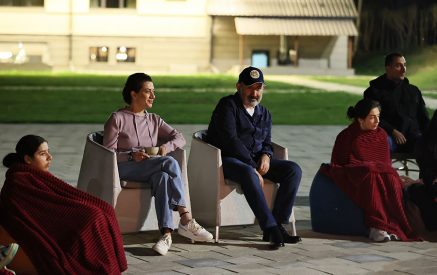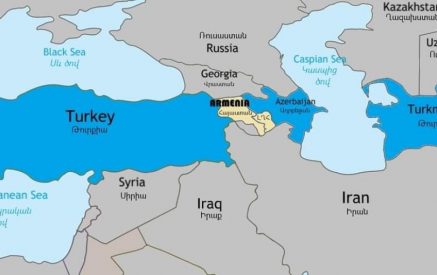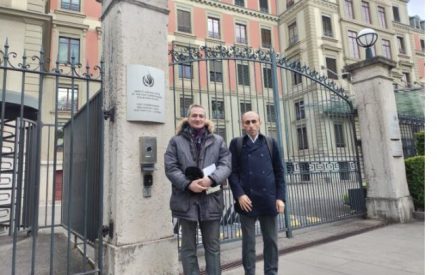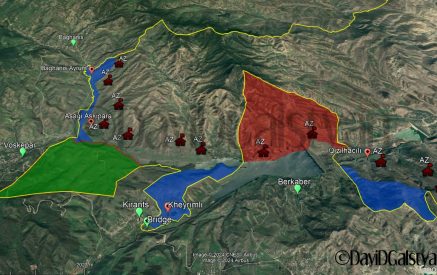Well-known American economist, Nobel Laureate Douglas North proposed a theory according to which nations are at different stages of development (he meant, of course, the economic situation) because in the past, in history, they made the wrong choice. They chose wrong, inefficient institutions that did not allow them to go on a higher path. This approach contradicts the almost universal belief in Armenia that everything depends on individuals. In our country, everyone “knows” who did something wrong, when, and why. “Oh, if this or that person was more decent and patriotic, our country would prosper.”
And names are given according to the political taste of a person or a group of people. Everyone also knows the “prescription.” Nothing good will happen in this country until Levon (Robert, Serzh, Nikol) disappears (is destroyed, is sentenced). Let me say that we will not go far with that “narrow” mindset. The “geopolitical” version of such an approach is “everything will be fine if the Russians leave (or if the Russians stay).” However, not everything is so primitive. Let’s try to look at the experience of other countries. American political scientist Robert Patman, studying the economic differences between northern and southern Italy in the 1990s (which are largely preserved to this day), notes that one of the main reasons for these differences was the choice made 1,000 years ago. The north and the center chose the republic, and the south chose the monarchy, and this created the appropriate institutions and culture, which ultimately affected the economy. Russian economist Alexander Auzan cites the example of his country’s history. In the 14th century there was a terrible plague epidemic in Europe, which affected 1/3 of the population.
The epidemic reached Moscow in 1353. Human resources became “deficient” – not enough to solve economic problems. What did they do? In Western Europe, the population began to be tempted by offering additional property, part of the harvest, and so on. And the Kingdom of Moscow (Russia did not exist in the modern sense at that time), as well as a number of other Eastern European states went the other way. They thought by the following logic: since human resources are a “hard-to-reach commodity” and there is a lot of land, let’s take that “commodity” and attach it to the land by force.
This is how slavery came about, which was combined with an authoritarian system. Autonomy is different from a European monarchy in that it enters the economic system immediately. And slavery is different from the traditional avant-garde relationship, because in this case the state always interferes in the relationship between the abuser and the subject.
Let us reserve the fact that until the 18th century, the right or wrong decisions were made by the elite, the people who had the leverage to implement those decisions. Only after the great French Revolution did the “people” (whatever meaning we put in that elastic notion) begin to play a certain but, I think, non-decisive factor. Is it possible for this or that elite of the country to understand that it is going the wrong way? Of course it is possible. However, making that choice “afterwards” is not so easy. The whole problem is that wrongly chosen institutions and written and unwritten rules begin to be reflected in a culture that maintains ineffective institutions, and the latter do not allow the culture to change.
If, let’s say, living in the Ottoman, Persian, and Russian empires instilled the institution of bribery in us Armenians, then in the last 2-3 centuries it has become an integral part of our culture (values and behavioral goals), and when an attempt is made to introduce relations between citizens and bureaucracy. Another, more effective institution, the 3-hundred-year-old culture, hinders it, and on the other hand, the institution of bribery does not allow people to be guided by other values. Thus, the “bed effect” is created, when the nation, roughly speaking, gives itself a wall, but in the end, continues its movement along the same bed. Now the most important question I do not have the answer to. If we accept that the Armenian state is going in the wrong direction (I think it is obvious to thinking people), and if the above theory is correct, then when did we make a mistake and what was that mistake?
Has this happened in the last 30 years, maybe it is a 100-year problem (if we take into account our previous attempts to build a state), or should we go further and ask why we have not made any serious attempts to reform the Armenian Apostolic Church? I do not mean the dogmas, but the social role of the church. Why didn’t we have the Reformation, Ivan the Terrible, Peter the Great, or Otto Bismarck? Again, I suggest you think about it. But to think beyond the personal characteristics of this or that leader.
Aram Abrahamyan























































